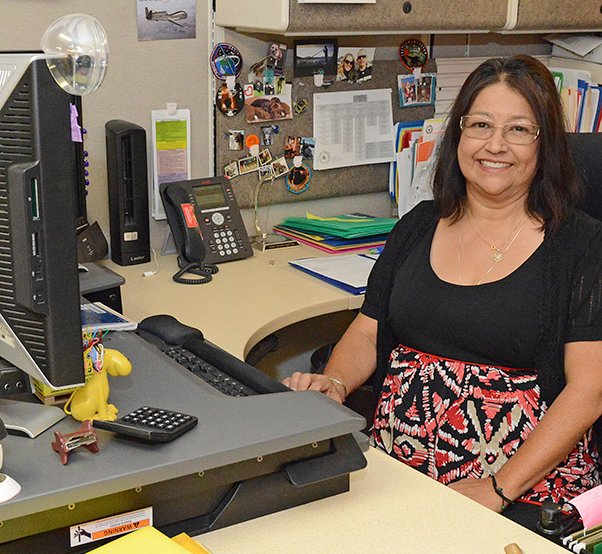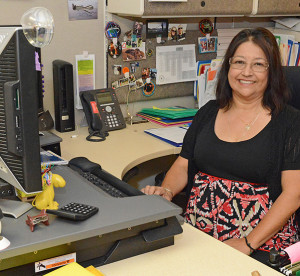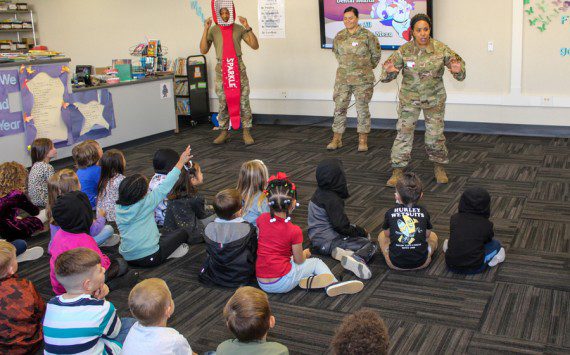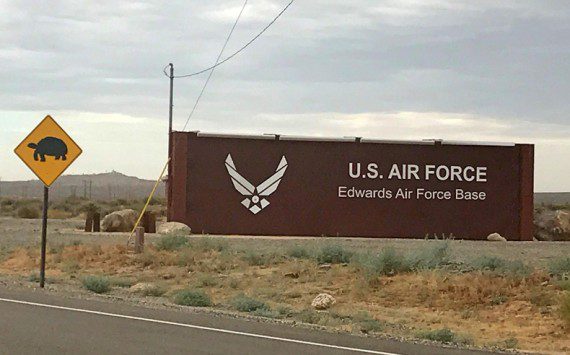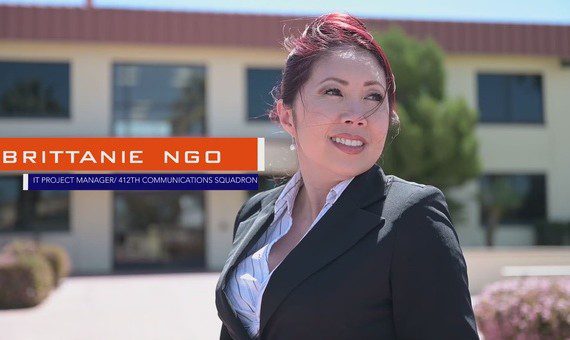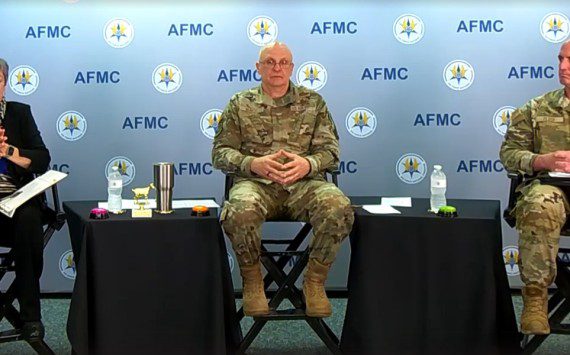Jacque Konstan sits in the 412th Test Engineering Group business office in Bldg. 1400, Sept. 26, 2018. Konstan has worked at Edwards AFB for 24 years and is asking her military family for help in finding a kidney donor for a transplant.
Jacque Konstan is in search of a kidney donor.
Konstan works for the 412th Test Engineering Group as a contract project specialist. She needs a kidney transplant due to deterioration of her kidneys caused by diabetes and is currently on peritoneal dialysis, a procedure that she does at home from the evening until 7 a.m. the next day.
“I thank God every day that I am able to do the ‘at home’ process and I thank God that I am eligible for a kidney transplant,” Konstan said.
Konstan is Air Force through and through she says. Not only has she worked at Edwards for 24 years, she originally arrived here in 1971 when her father was stationed at the historic California base.
“I am turning to my military family to start my search for a living donor because this family has always been close to my heart,” said Konstan. “I was raised in the Air Force, my father served 25 years with 10 years at Edward Air Force Base. The Air Force is in my blood. Due to hereditary issues with diabetes, my immediate family does not qualify as a donor.”
Konstan’s blood type is O-positive, but through a universal exchange program under the Unified Network for Organ Sharing, if she finds a qualified donor that does not match her blood type, she can trade with someone else in the same situation.
Generally, anyone 70 years old or younger with good kidneys can donate, according to the UNOS.
“I realize that I am asking for a lot, I am asking you to give up a part of your body to save my life.”
Konstan says her insurance will pay for the qualifying tests and the transplant procedure, but it does not cover government sick leave.
Anyone with questions, or would like to help, can send an email to jacque.konstan@us.af.mil.
She has a brochure she can send to interested people describing the process and what it’s like being a living donor.
Konstan says more than 120,000 people are on a list for an organ transplant nationwide and she was told it could take 10 years for a donor to be available to her.
To spare an individual patient a long and uncertain wait, relatives, loved ones, friends, and even people who wish to remain anonymous, may serve as living donors, according to the UNOS.






